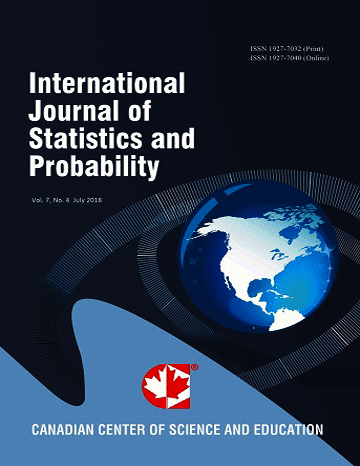A Classroom Approach to Illustrate Transformation and Bootstrap Confidence Interval Techniques Using the Poisson Distribution
- Per Andersson
Abstract
The Poisson distribution is here used to illustrate transformation and bootstrap techniques in order to construct a confidence interval for a mean. A comparison is made between the derived intervals and the Wald and score confidence intervals. The discussion takes place in a classroom, where the teacher and the students have previously discussed and evaluated the Wald and score confidence intervals. While step by step interactively getting acquainted with new techniques, the students will learn about the effects of e.g. bias and asymmetry and ways of dealing with such phenomena. The primary purpose of this teacher-student communication is therefore not to find the best possible interval estimator for this particular case, but rather to provide a study displaying a teacher and her/his students interacting with each other in an efficient and rewarding way. The teacher has a strategy of encouraging the students to take initiatives. This is accomplished by providing the necessary background of the problem and some underlying theory after which the students are confronted with questions and problem solving. From this the learning process starts. The teacher has to be flexible according to how the students react. The students are supposed to have studied mathematical statistics for at least two semesters.
- Full Text:
 PDF
PDF
- DOI:10.5539/ijsp.v6n2p42
Index
- ACNP
- Aerospace Database
- BASE (Bielefeld Academic Search Engine)
- CNKI Scholar
- DTU Library
- Elektronische Zeitschriftenbibliothek (EZB)
- EuroPub Database
- Excellence in Research for Australia (ERA)
- Google Scholar
- Harvard Library
- Infotrieve
- JournalTOCs
- Mir@bel
- Open policy finder
- ResearchGate
- Technische Informationsbibliothek (TIB)
- UCR Library
- WorldCat
Contact
- Wendy SmithEditorial Assistant
- ijsp@ccsenet.org
